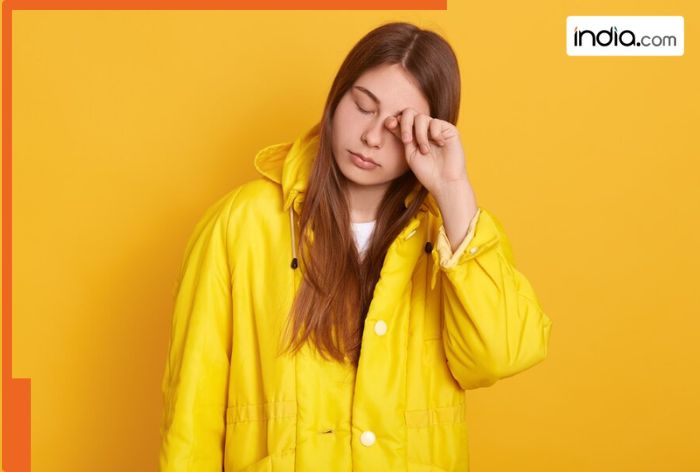Rising air pollution in Delhi-NCR is causing serious eye allergies and more. This is how the problems can be mitigated.
Diwali, the festival of lights, is known by residents across the country, who celebrate it with great enthusiasm and multiple customs. But the uneconomical use of firecrackers considerably increases the existing pollution levels in the air. Smoke, gases and particles suspended in the air during Diwali reach the lungs and cause serious health effects, especially on the person’s eyes. Eye problems such as irritation, allergies, irritations and infections are some of the diseases that could be contracted due to pollutants during this festive season.
How does air pollution affect the eyes?
- Particulate matter: Particles less than 10 micrometers in diameter can penetrate the ocular membranes of the eye and cause irritation in its most sensitive parts.
- Chemical exposure: According to Dr. Neeraj Sanduja, MBBS, MS, ophthalmologist and eye surgeon at Viaan Eye and Retina Centre, firecrackers are often laced with substances that can generate sulfur dioxide and nitrogen oxides, which are harmful to the eyes.
- Eye irritation: Firecrackers release harmful gases such as sulfur dioxide and nitrogen dioxide along with PM2.5 particles, all of which can easily cause flare-ups in the eyes and cause redness, itching, burning sensation and excessive tearing that can continue for hours after the incident. exposure.
- Allergic conjunctivitis: For allergy patients, pollution during Diwali celebrations can cause allergic conjunctivitis, which is manifested by swelling, redness and watery eyes as a result of bothersome pollutants and allergens.
- Dry eyes: A condition as common as dry eyes and its syndromes are worsened by interruptions in tear production and increased evaporation due to pollution. For those with dry eyes, this is more uncomfortable as it causes gritty discomfort and blurred vision.
- Eye infections: Pollution, along with smoke and dust particles, also act as vectors for organisms, including viruses and bacteria, which are harmful. They cause diseases such as conjunctivitis. Pain, discharge, and swelling are the most obvious signs, but they are not emphasized and worsen over time if untreated.
Tips for managing eye health
- Minimize outdoor exposure: Try to spend less time outdoors when firecrackers are primarily used. Whenever possible, protective eyewear, such as sunglasses, should be worn while outdoors to protect your eyes from smoke and other particles.
- Use artificial tears: Artificial tears or lubricating eye drops available without a prescription are helpful for dry, irritated eyes. These drops help cleanse the eyes of pollutants and help keep the eyes moist and hydrated to greatly improve the effects of pollution.
- Rinse your eyes frequently: Eyes should be washed frequently with clean, cold water to remove dust and particles. Avoid rubbing your eyes, as it may rub the allergens present or cause a minor abrasion. Splash some water or use a clean solution to wash your eyes.
- Stay Hydrated: Adequate amounts of fluid should be drunk to encourage normal tear production. Dehydration makes dry eye syndrome more unbearable and therefore being well hydrated also makes the eyes comfortable.
- Use a humidifier indoors: Indoor air has also been found to be poorly ventilated and humidified on Diwali. With the help of a humidifier, excess moisture is added to the atmosphere to overcome the effects of dry air and minimize irritation as a result of polluted air.
- Switch to glasses: Contact lenses, as the term itself suggests, are close to the eyeball and make the eye quite dirty. During Diwali, glasses can be worn with powdered eye paint and also protect against penetrating smoke and dust in the air.
- Maintain a healthy diet: Certain organic compounds in foods can calm inflammation, which is a common problem for everyone. Green leafy vegetables, carrots, nuts, fish rich in omega-3, as well as vitamins A, C and E or their antioxidants should be consumed regularly.
- Avoid rubbing your eyes: If your eyes feel funny for the right, wrong, or sideways reasons, don’t rub your eyes and then hurt yourself by being so self-conscious, grab a cold compress, or go out and buy eye drops until your conscience forces you to stop.
Diwali brings joy and light, but also an increase in air pollution that can harm eye health. By understanding the effects of pollutants and following these essential eye care tips, you can protect your eyes from irritation, allergies, and infections during the holiday season. Take precautions to ensure your eyes stay healthy while you enjoy the celebrations.
